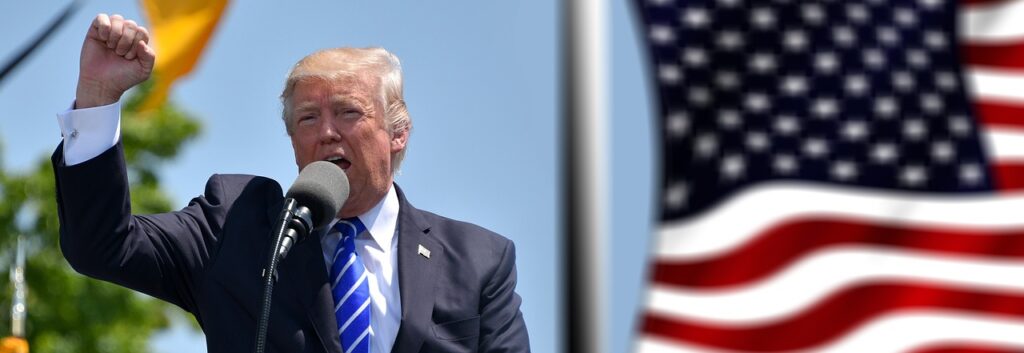Former US President Donald Trump has suggested that Ukraine could secure continued military aid from Washington by agreeing to a rare earth minerals deal. This proposal has been met with significant attention from lawmakers, including Republican Senator Lindsey Graham, who views the potential agreement as a major step in bolstering US support for Ukraine.
Trump’s Proposal and Its Implications
The proposed deal centers around the US gaining access to Ukraine’s valuable deposits of rare earth minerals. These minerals, crucial for high-tech industries and military hardware, are seen as strategic assets for the United States, particularly in the context of the ongoing war in Ukraine. Rare earth minerals are vital for the production of advanced technologies, including electronics, renewable energy systems, and weapons systems.
According to Trump, this agreement could serve as a turning point in the United States’ military and diplomatic relationship with Ukraine. By granting the US rights to mine these minerals, Ukraine could potentially secure a steady flow of military aid and financial support from Washington.
Trump’s suggestion is a shift from the traditional approach to supporting Ukraine, which has largely focused on providing direct military assistance in the form of weapons, training, and financial aid. The new proposal introduces an economic incentive for both countries, one that could reshape the US public’s perception of Ukraine’s role in the conflict.
Senator Lindsey Graham’s View on the Deal
Senator Lindsey Graham, a strong advocate for continued US support for Ukraine, called the potential deal a “game-changer.” Speaking at the Munich Security Conference, Graham stated that the rare earth minerals deal would be a significant strategic win for the US, particularly in its efforts to counter Russia’s influence in the region.
Graham emphasized that Ukraine’s mineral wealth could play a key role in shifting the dynamics of the ongoing war. With rare earth minerals valued at trillions of dollars, the US could gain access to resources that are essential for its defense industry and its broader economic interests.
Furthermore, Graham argued that this deal could provide a way to strengthen support for Ukraine in the US, turning the narrative around the country’s financial and military aid. He noted that President Trump could present Ukraine as an asset to American citizens, rather than a burden. This shift in perspective could help solidify public support for ongoing military assistance to Ukraine, which has been a contentious issue in US politics.
A Setback for Russia
Senator Graham also highlighted the strategic importance of the deal in weakening Russia’s position in the conflict. By gaining access to Ukraine’s rare earth mineral resources, the US would hold significant leverage over Moscow. Graham argued that this would be a major setback for Russian President Vladimir Putin, who has relied on the US and Western reluctance to confront him directly.
With the rare earth minerals deal, Ukraine could emerge as a more valuable partner for the US, while Russia’s influence in the region would diminish. Graham believes that this agreement would make it harder for Putin to justify his invasion of Ukraine, as it would effectively put valuable resources in the hands of his adversaries.
NATO’s Role in the Conflict
In his remarks at the Munich Security Conference, Graham also reiterated his strong support for NATO, despite concerns raised by some US officials. For example, US Defense Secretary Pete Hegseth has suggested that the US should shift its priorities and reduce its involvement in Europe. However, Graham pushed back against such ideas, emphasizing that NATO’s unity is crucial in the face of Russian aggression.
According to Graham, NATO’s commitment to defending its member states is unwavering. He argued that Russia would never attack a NATO member state, fearing the severe consequences of such an action. NATO’s strong collective defense capability, coupled with the alliance’s commitment to mutual protection, makes it an essential bulwark against Russian expansionism.
The senator urged the US to continue its support for Ukraine by providing the country with the military aid it needs to defend itself. He noted that South Carolina, his home state, produces F-16 fighter jets, which could be sent to Ukraine to bolster its defense capabilities. By fully arming Ukraine, Graham believes that the West could send a strong message to Russia and deter further aggression.
Learning from Past Mistakes
Graham also took the opportunity to reflect on past mistakes in Western policy, particularly regarding the 2014 annexation of Crimea by Russia. He criticized the West for failing to act decisively at that time, with leaders avoiding provocative actions against Putin, which ultimately emboldened him. In hindsight, Graham argued, this hesitation only allowed Russia to strengthen its position and expand its influence.
The senator’s warning was clear: “Don’t worry about provoking Putin, worry about stopping Putin.” He stressed that the West must take a firm stance against Russia to prevent further escalation and ensure the stability of Europe and the wider international community.
President Trump’s proposal for a rare earth minerals deal with Ukraine marks a new chapter in US foreign policy, offering a potential economic and strategic path forward in the ongoing conflict with Russia. With support from lawmakers like Senator Lindsey Graham, the deal could change the dynamics of the war and shift US public opinion in favor of continued support for Ukraine.
The proposed agreement also underscores the growing importance of rare earth minerals in global geopolitics, as nations vie for access to these critical resources. As the conflict in Ukraine continues, it remains to be seen whether this proposal will gain traction and whether it will alter the course of the war.
For more insights into this evolving situation, visit Wealth Magazine.


